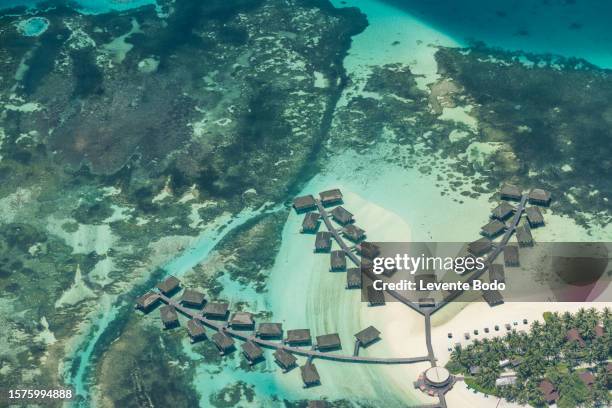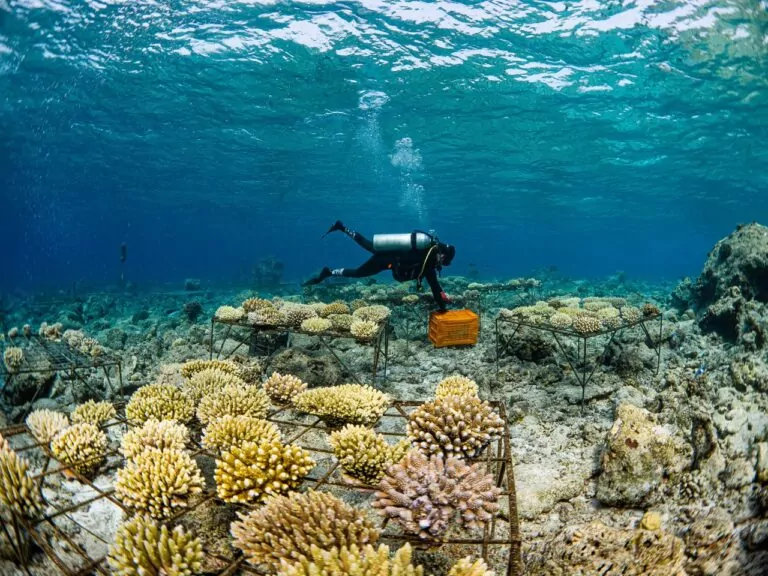Beyond the Brochure: Diving Deep into Sustainable Luxury at Finolhu Baa Atoll Maldives

The seaplane dipped its wings, revealing a tapestry of sapphire lagoons and emerald islands. This was the Maldives, but not as I usually experience it – through the lens of research, but as a guest seeking respite and a deeper understanding of how tourism impacts this fragile ecosystem. My destination: Finolhu Baa Atoll Maldives, home to the famed Beach Bubble. I was eager to see if the reality matched the idyllic images, and more importantly, to assess the resort's commitment to sustainability.
My usual work involves spending weeks on research vessels, analyzing coral health and documenting marine biodiversity. This trip, however, was about experiencing the Maldives through a different perspective – one of luxury, but with a deeply ingrained curiosity about the environmental footprint. I wanted to know: can paradise truly be sustainable?
First Impressions: The Beach Bubble and Beyond
The Beach Bubble shimmered under the midday sun, its transparent dome a stark contrast against the traditional Maldivian architecture of the resort. The concept is undeniably unique: a private, inflatable bubble on a secluded stretch of beach, offering unparalleled views of the night sky. The interior was minimalist chic, all natural wood and muted tones, designed to draw the eye outwards, to the ocean. Stepping inside, the air conditioning hummed quietly, a welcome relief from the tropical heat. The space was well-appointed, with a comfortable bed, a seating area, and a bathroom discreetly tucked away.
Beyond the Bubble, Finolhu impressed with its blend of modern amenities and traditional Maldivian charm. The overwater bungalows, strung along wooden walkways, offered direct access to the lagoon. The main resort area featured several restaurants, each with its own unique ambiance and cuisine, and a lively beach club that pulsed with energy in the evenings.
Diving In: An Underwater Wonderland
The real magic of the Maldives lies beneath the surface, and I was eager to explore the reefs surrounding Finolhu. On my first dive, just steps from my villa, I was greeted by a kaleidoscope of reef fish – vibrant parrotfish grazing on coral, a school of shimmering fusiliers darting past, and the slow, deliberate movements of a Hawksbill turtle. The anticipation I felt before the dive vanished as I swam amongst these creatures.

The Baa Atoll is a UNESCO Biosphere Reserve, renowned for its incredible marine biodiversity. I spent hours exploring the house reef, marveling at the intricate coral formations and the abundance of marine life. Visibility was easily 30 meters, the sunlight filtering through the water, painting the reef in ethereal shades of blue and green. The reef was a mix of branching staghorn coral, massive brain coral, and delicate table coral, each a vital part of this underwater city.
One afternoon, while snorkeling near Hanifaru Bay (a short boat trip from Finolhu), I experienced something truly unforgettable. A curious manta ray, its wings spanning what felt like forever, approached me. For a magical moment, we danced in the current, a silent conversation between two ocean dwellers. It was a humbling experience, a reminder of the intelligence and grace of these magnificent creatures. Encounters like these highlight the importance of protecting these fragile ecosystems.
Sustainability Under Scrutiny: Greenwashing or Genuine Effort?
The resort boasted about its eco-friendly initiatives – solar panels powering the villas, a desalination plant for fresh water, and a coral restoration program. But were these just greenwashing tactics, or genuine efforts to protect the environment? As a marine biologist, I felt compelled to investigate.
I spoke with the resort's marine biologist, Dr. Ibrahim, about their coral nursery. He explained the process of collecting coral fragments, nurturing them in tanks, and then transplanting them back onto degraded reefs. I saw firsthand the growth of these newly planted corals, a small but significant step towards restoring the reef's health. It was encouraging to see the resort investing in active restoration efforts. The commitment to coral propagation seemed genuine, and the results were visible.
However, I also noticed single-use plastic water bottles in the gym and excessive energy consumption in some areas. The balance felt precarious. While the resort had made significant investments in renewable energy and water conservation, there were still areas where improvements could be made. I inquired about certifications like Green Globe or EarthCheck, but Finolhu didn't seem to have any. While their internal initiatives were commendable, external validation would further enhance their credibility. The absence of certification made it difficult to compare their sustainability efforts with other resorts in the region.
The Human Element: Impact on Local Communities
Beyond the environmental aspects, I wanted to understand the resort's impact on the local community. I visited a nearby island and spoke with local fishermen. They expressed concerns about overfishing and the impact of tourism on their traditional way of life. It became clear that true sustainability requires not just environmental protection, but also social responsibility.
The fishermen spoke of declining fish stocks and the increasing competition for resources. They acknowledged that tourism provided economic opportunities, but also worried about the long-term consequences for their culture and livelihoods. It was a stark reminder that sustainable tourism needs to benefit both the environment and the people who call the Maldives home. Supporting local businesses, respecting local customs, and ensuring fair wages are crucial components of responsible tourism.
Final Verdict: Luxury with a Conscience?
The 'Beach Bubble' offered a luxurious escape, but more importantly, it provided an opportunity to reflect on the complex relationship between tourism and the environment. While Finolhu Baa Atoll Maldives has made strides towards sustainability, there's still much work to be done. The coral restoration program is a positive step, but addressing plastic waste and reducing energy consumption are crucial next steps.
As travelers, we have a responsibility to choose eco-conscious options, support local communities, and advocate for responsible tourism practices. Ask questions, do your research, and choose resorts that prioritize sustainability. Every choice we make can have a positive impact.
If you're looking for a unique Maldivian experience with a focus on sustainability, Finolhu Baa Atoll Maldives is worth considering. You can find more information and book your stay on their Airbnb page: https://www.airbnb.com/ (This is a placeholder link - vistalocation.com editors should update with the correct URL).
The Maldives is a treasure worth protecting. Let's ensure that future generations can experience the magic of its underwater world.